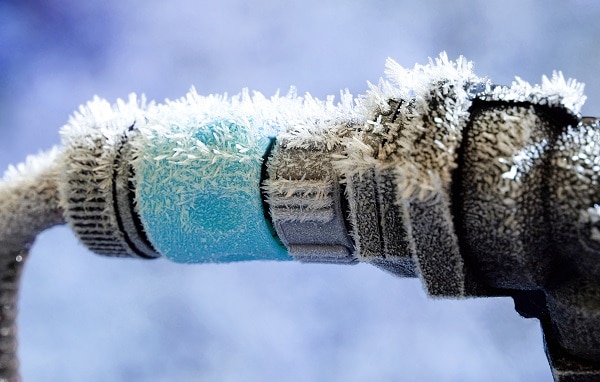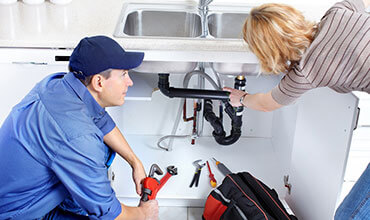The content listed below on the subject of How to stop pipes from freezing during the winter is rather engaging. Don't miss out on it.

All home owners who live in warm environments should do their best to winterize their pipelines. It is something you should do throughout autumn prior to deep winter really starts. Failure to do so can lead to disaster like frozen, broken, or burst pipelines. If the weather outside is frightful, here are some useful winterizing hacks to maintain your plumbing system protected also.
Attempt a Hair Dryer or Warm Gun
When your pipelines are practically freezing, your trusty hair clothes dryer or warm weapon is a godsend. If the warm towels do not assist remove any working out ice in your pipes, bowling warm air directly into them might help. You might end up harmful your pipes while trying to melt the ice.
Open Up Cupboard Doors Hiding Plumbing
When it's cool outside, it would certainly be handy to open cabinet doors that are masking your pipelines. Doing this small method can keep your pipelines cozy and restrict the possibly hazardous end results of freezing temperatures.
Require Time to Cover Exposed Piping
One very easy as well as cool hack to heat up freezing pipes is to wrap them with cozy towels. You can also utilize pre-soaked towels in warm water, just don't forget to use safety handwear covers to protect your hands from the heat.
Turn On the Faucets
When the temperature declines and it appears as if the freezing temperature will certainly last, it will assist to turn on your water both inside your home and outdoors. This will maintain the water streaming with your plumbing systems. On top of that, the movement will certainly decrease the cold process. Notably, there's no need to transform it on full force. You'll wind up throwing away gallons of water by doing this. Rather, go for concerning 5 decreases per minute.
Turn off Water When Pipelines are Frozen
Switch off the main water shutoff instantly if you notice that your pipes are completely frozen or virtually nearing that stage. You will typically discover this in your cellar or utility room near the heater or the front wall surface closest to the street. Transform it off today to stop more damage.
Do not forget to close exterior water sources, also, such as your hookup for the garden residence. Doing this will stop added water from filling out your plumbing system. However, with even more water, even more ice will pile up, which will at some point cause rupture pipes. If you are unclear concerning the state of your pipelines this winter season, it is best to call a professional plumber for an assessment. Taking this proactive technique can save you hundreds of dollars out of commission.
All property owners who live in pleasant climates need to do their best to winterize their pipes. Failure to do so can spell calamity like icy, split, or ruptured pipelines. If the warm towels do not help remove any clearing up ice in your pipelines, bowling warm air directly into them may aid. Turn off the major water shutoff right away if you discover that your pipes are totally icy or almost nearing that phase. With even more water, more ice will certainly stack up, which will eventually lead to break pipes.
PREVENT YOUR PIPES FROM FREEZING THIS WINTER
A Leading Cause of Property Damage
When the weather is taking a deep nose dive into the cold dreary days, the risk of your pipes freezing and potentially bursting skyrockets. Unfortunately, during these cold dreary months, burst pipes are the most common denominator for property damage. The pipes that are most at the risk are those that are in areas where it is most cold in your home. For instance, pipes located in interior places such as basements, attics, and your garage. Unfortunately, that doesn’t mean that the pipes running through your cabinets or exterior walls can’t freeze. Good news, however, is that you can do things to help prevent pipes from freezing.
How to Prevent Pipes From Freezing
Once the temperature starts to drop during the winter, you should be taking the proper measures needed to ensure that your pipes stay warm and that there is circulation of water through them. Some steps that experts may recommend could go against your better judgement when it comes to saving water and heat. However, it would go without saying that when expenses are compared, damaged pipes could put a bigger dent in your wallet than a water bill.
What Can I Do?
Keep your garage door closed. This is very important, especially if you have water supply lines running through your garage. Open your kitchen and bathroom cabinets to allow warm air to circulate through them. Allow air circulation throughout your home. Keeping the interior doors open will once again allow the warm air to circulate inside your home. Ensure your thermostat is running the same temperature throughout the night and day. If you plan to be away from home during the cold months, set your temperature no lower than 55° F. This should provide enough heat to keep the pipes warm and prevent any remaining water inside the pipes from freezing. For more of a long-term solution, add insulation to attics, basement, and other crawl spaces around your home. By allowing your faucet to drip, it will alleviate pressure in the system. This is important because the pressure that is created between the blockage and the faucet can potentially cause the pipes to burst. Allowing the faucet to drip will prevent the pressure from building up, therefore keeping the pipes from bursting. Seal any cracks, openings, and crawl spaces around your home to prevent cold air from coming inside. This keeps your pipes-not to mention your home-warmer and less susceptible to issues caused by freezing temperatures. For the pipes in your home that are easily accessible, applying electrical tape to them might prevent them from freezing over. This is a quick fix, as you can apply the tape directly to the pipe. There are two options for heating tapes. One turns on and off by itself when it senses heat is needed. The other type of heating tape needs to be applied when heat is needed and removed when not necessary. If you have exposed pipes in your home, you can check this website to take a look at a few options that would be available at a shop near you.

Do you really like reading about How to Prevent Frozen Pipes? Post feedback below. We would be delighted to hear your thinking about this post. We hope that you visit us again before long. Sharing is caring. You won't know, you may be doing someone a favor. Thank you for your time. Come back soon.
Top-rated emergency plumbing? Connect today.